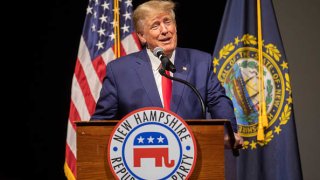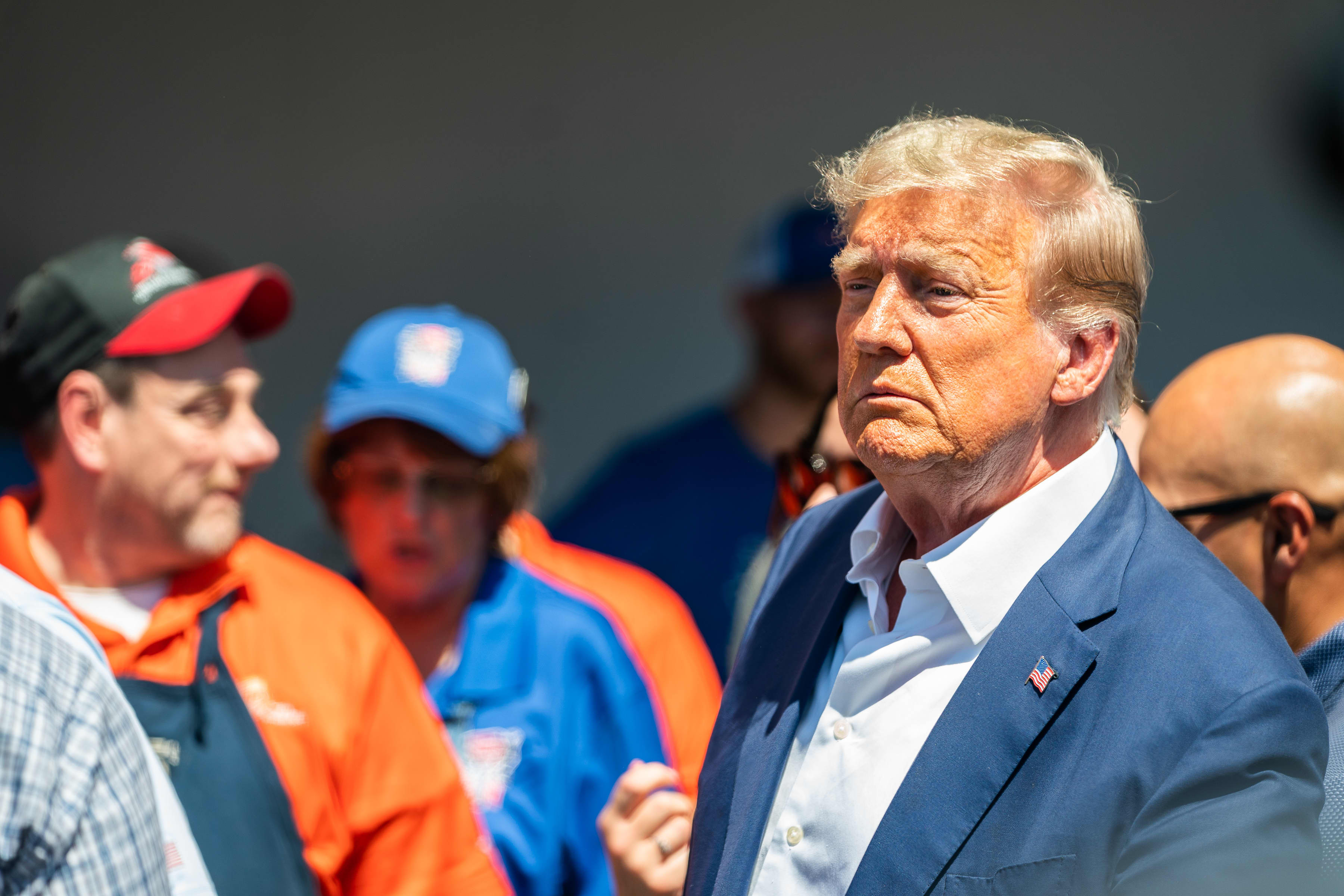
The New Hampshire Attorney General's Office is examining a provocative legal argument that could prevent former President Donald Trump from being on the ballot in the 2024 presidential elections over his part in the Jan. 6 insurrection at the U.S. Capitol.
Attorney General John Formella and Secretary of State David Scanlan issued a joint statement Tuesday saying that their offices have been tracking a legal discussion over Section 3 of the 14th Amendment and that Formella's office is "reviewing the legal issues involved" at the request of Scanlan's office.
The 14th Amendment to the Constitution was adopted after the Civil War, and its third section disqualifies anyone who "engaged in insurrection or rebellion" against the U.S. after taking the oath of office from serving in a federal office. Two conservative legal scholars this month pre-published an article arguing that the section prevents Trump from running for president again.
On Monday, a conservative talk show host prompted Trump supporters to bombard Scanlan's office with phone calls seeking assurances that the secretary of state, who oversees New Hampshire's elections, will not prevent Trump from being on the ballot, NBC News reported.
Get Boston local news, weather forecasts, lifestyle and entertainment stories to your inbox. Sign up for NBC Boston’s newsletters.
The announcement from Scanlan and Formella on Tuesday said there's been "misinformation asserting or implying that the Secretary of State's office has already taken a position on or is seeking to take certain action with respect to Donald Trump's candidacy" in the primary, adding that neither office has taken a position on whether Section 3 of the 14th Amendment applies to the upcoming election.
Read the full statement from Formella and Scanlan below.
A judge on Monday set a March 4, 2024, trial date for the federal case in Washington charging the former president with trying to overturn the results of the 2020 election. That would have the trial — one of four active prosecutions Trump faces — begin around when New Hampshire's first-in-the-nation primary takes place.
The constitutional argument from professors William Baude, of the University of Chicago Law School, and Michael Stokes Paulsen, of the University of St. Thomas, is due to be published in the University of Pennsylvania Legal Review. It could form the basis of a lawsuit challenging Trump's candidacy in upcoming election.
Asa Hutchinson, the former Arkansas governor who's also running for the Republican presidential nomination, referred to the issue at the party's first presidential debate last week.
"Well over a year ago, I said that Donald Trump was morally disqualified from being President, again, as a result of what happened on Jan. 6. More people are understanding the importance of that, including conservative legal scholars, who says he may be disqualified under the 14th Amendment from being President, again, as a result of the insurrection. This is something that could disqualify him, under our rules, and under the Constitution," Hutchinson said.
For constitutional law expert Kent Greenfield, of Boston College Law School, there's no doubt that this issue will wind up moving through the courts, where the question will center on interpretation.
"So much of it depends on how we think of Jan. 6," he said. "Was it in insurrection? Sedition?"
New Hampshire GOP Chairman Chris Ager bristles at the debate, saying that he and the state party are likely to intervene if the debate continues to gain traction
"He hasn't been convicted of anything," Ager said, adding, "There's an old saying, 'You can indict a ham sandwich.'"
But Corky Messner, a Republican lawyer who won Trump's endorsement in the 2020 U.S. Senate election in New Hampshire, which he lost to incumbent Democrat Sen. Jeanne Shaheen, is entertaining the argument.
"This notion ... put everyone on the ballot and let the voters decide, undermines the Constitution," he told NBC10 Boston.
Scanlan told NBC News that Messner met with him Friday to present the argument challenging Trump's ability to be on the ballot.
Messner told NBC News he was motivated to do "purely as a constitutional conservative," and that everyone's interest would be served if the issue "gets to the U.S. Supreme Court as quickly as possible."
Read Formella and Scanlan's full statement:
Both the Secretary of State’s Office and the Attorney General’s Office are aware of public discourse regarding the potential applicability of Section Three of the Fourteenth Amendment to the United States Constitution to the upcoming presidential election cycle, including misinformation asserting or implying that the Secretary of State’s Office has already taken a position on or is seeking to take certain action with respect to Donald Trump’s candidacy for the Republican National Convention’s nomination for president in the 2024 United States Presidential Election.
Neither the Secretary of State’s Office nor the Attorney General’s Office has taken any position regarding the potential applicability of Section Three of the Fourteenth Amendment to the United States Constitution to the upcoming presidential election cycle.
The Secretary of State’s Office has requested the Attorney General’s Office to advise the Secretary of State regarding the meaning of Section Three of the Fourteenth Amendment to the United States Constitution and the provision’s potential applicability to the upcoming presidential election cycle.
The Attorney General’s Office is now carefully reviewing the legal issues involved.



